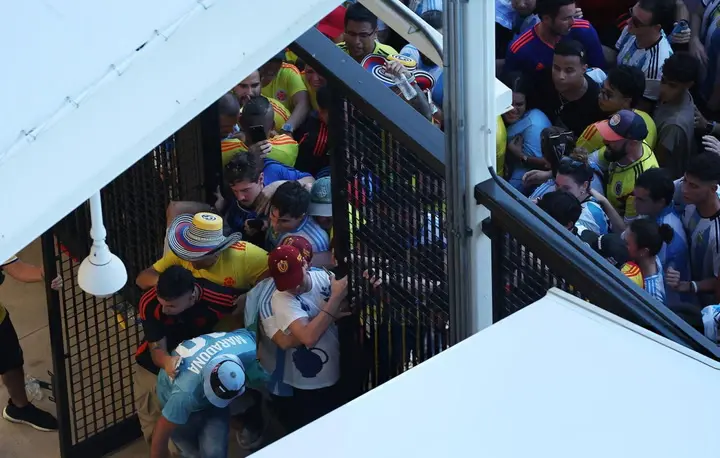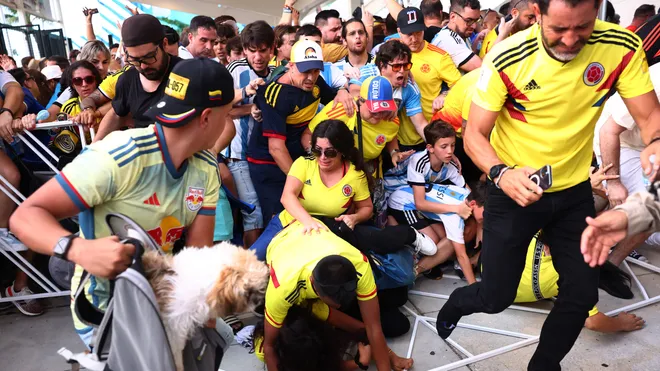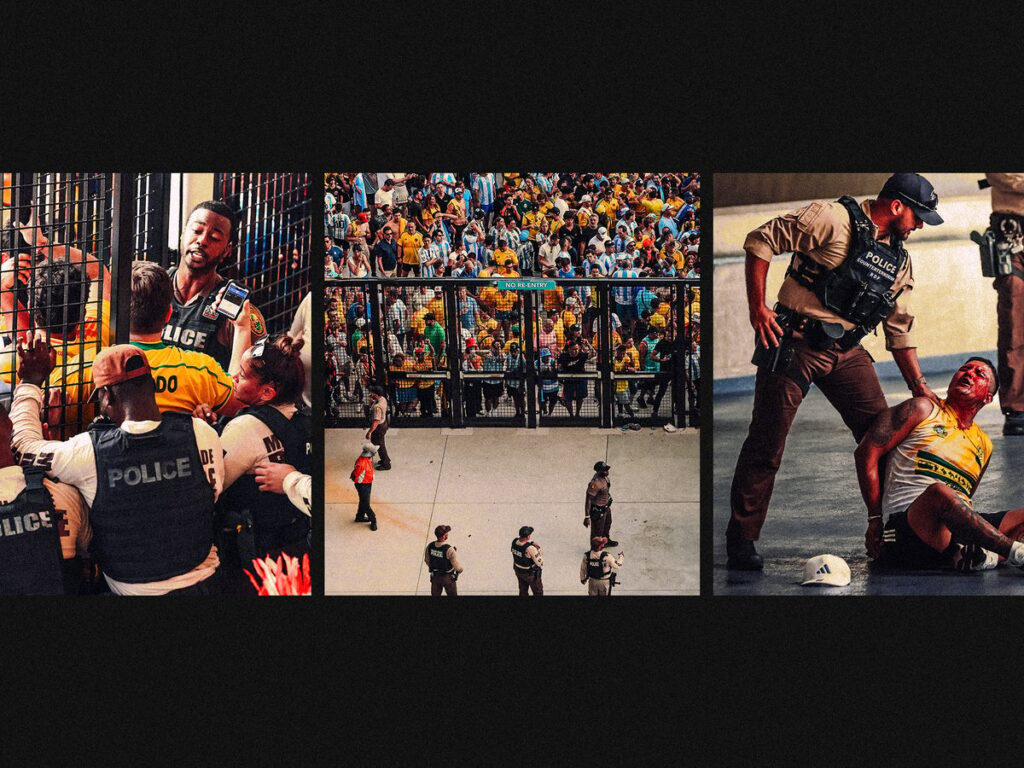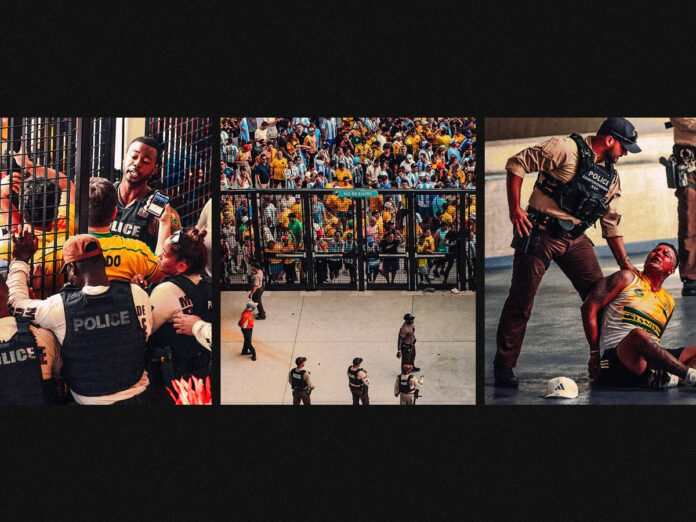Copa America 2024: The Event That Nearly Ended in a Heart Breaking Disaster
The Copa America 2024 was intended to be a grand showcase of football, celebrating the sincere love for the sport across the Americas. However, as the Argentine newspaper Ole poignantly noted, “this party almost became a tragedy.” The tournament, hosted by the United States in some of the world’s premier stadiums, faced numerous setbacks, culminating in chaotic scenes during the final match on Sunday.
The final between Argentina and Colombia at Miami’s Hard Rock Stadium was marred by an 80-minute delay due to ticketless fans forcing their way into the venue. The ensuing clashes with police and security personnel led to several arrests and injuries, casting a dark shadow over what was supposed to be the highlight of the tournament. These events have sparked significant concerns about the preparedness for the 2026 World Cup, set to be co-hosted by the US, Canada, and Mexico.
Early Signs of Trouble
From the opening match between Argentina and Canada in Atlanta, issues were apparent. Argentina’s coach, Lionel Scaloni, and players from both teams voiced their dissatisfaction with the pitch conditions. These problems were not isolated; eleven out of the fourteen host venues were NFL stadiums, with six having grass pitches hastily installed over artificial surfaces. In some instances, the turf was laid just days before the matches commenced.
Despite Conmebol, the governing body of South American football, claiming that tests confirmed the pitches were in good condition, Uruguay coach Marcelo Bielsa vehemently disagreed. He accused the organizers of dishonesty, criticizing the subpar training facilities and alleging that Scaloni and his players were threatened to keep silent.

Brazilian star Vinicius Jr. also expressed his dissatisfaction with the pitch quality and refereeing standards. The Football Federation of Chile (FFC) demanded sanctions against referee Wilmar Roldan for what they deemed as poor conduct during their final group game. The tensions further escalated when Uruguay players clashed with Colombian fans after their semi-final defeat, as they entered the stands to protect their families. The Uruguay Football Association (AUF) cited inadequate security measures and a lack of segregation between Colombian and Uruguayan fans during the game in Charlotte.
The Final’s Disarray
The climax of Copa America 2024 was supposed to be the final between Argentina and Colombia. Instead, it turned into a chaotic spectacle. Colombian coach Nestor Lorenzo had already raised concerns about Colombian pop star Shakira’s halftime performance, which extended the interval from 15 to 25 minutes.
Despite Conmebol’s assurance in Copa America 2024 that only ticket holders would be allowed into the stadium campus before the 20:00 kick-off, thousands of ticketless fans attempted to breach the stadium gates as the match time approached. Videos showed fans scaling walls, breaking through gates, and even crawling through ventilation ducts.

The situation became dangerously overcrowded outside the stadium, with fans enduring the 31°C heat. To prevent potential stampedes and serious injuries, officials decided to allow fans to enter without scanning tickets for a brief period. Once the threat of a crush was mitigated, the gates were closed again, but by then, the venue had reached full capacity. This led to chaos inside the stadium, with players and their families caught in the turmoil. Argentina coach Scaloni remarked, “We had to start a match without knowing where our family members were. It was very weird.”
The match, delayed by over an hour, eventually concluded after midnight local time. The disorder outside the stadium in Copa America 2024 resulted in the deployment of more than 800 law enforcement officers, with 27 arrests and 55 ejections from the venue.
Future Implications
The chaotic scenes at Copa America 2024 have cast a shadow over the preparations for the 2026 World Cup. Eight of the Copa America venues, including the Hard Rock Stadium, are scheduled to host matches during the World Cup. In response to the disorder, the stadium management has pledged to work with law enforcement to identify those responsible and to review security processes to prevent a repeat of such events.

James Reyes, chief of public safety for Miami-Dade County, emphasized the need for a thorough review of all safety and security protocols. “We are working with event organizers to conduct a comprehensive review of all safety and security protocols, as we continue to prepare for the World Cup in 2026,” Reyes stated.
Conmebol expressed regret over the violent incidents that marred the final, stressing that the actions of a few individuals tarnished what should have been a grand celebration of football. They also mentioned that their suggested security procedures were not fully implemented.
While Conmebol oversees Copa America 2024, the World Cup is organized by FIFA. The North America-based Independent Supporters Council (ISC) remains optimistic about the 2026 tournament, trusting that host cities and planning committees will address and anticipate potential issues. An ISC statement stated, “Although Copa America highlighted serious issues that could make people apprehensive about traveling to North America, we trust that the host cities and planning committees have taken note of these issues and are already anticipating and planning accordingly.”
As the dust settles from the tumultuous Copa America 2024, organizers and fans alike are left to ponder the lessons learned and the steps needed to ensure a successful and safe World Cup in 2026 unlike Copa America 2024.

